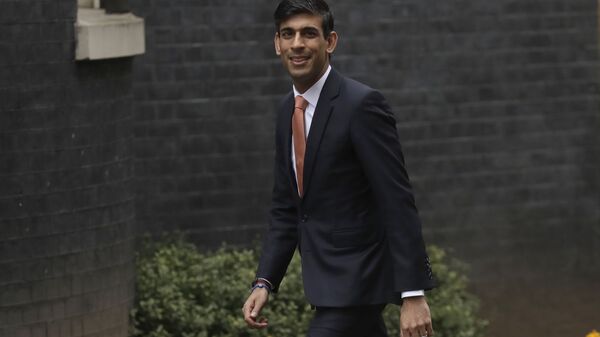British Prime Minister Boris Johnson and Chancellor of the Exchequer Rishi Sunak have agreed to cut personal taxes before the next general election scheduled for 2024, according to The Sunday Times.
The newspaper reported that the two arrived at a consensus on the issue after they thrashed out a deal on the government's economic strategy amid the COVID-19 pandemic.
"The chancellor will tell MPs and voters that the government must raise money now to pay for the coronavirus bailouts. But he will outline an 'arc' on taxation that will see the wealthy asked to shoulder a heavier burden in November's budget, with tax cuts to follow in 2023 or 2024", The Sunday Times said, apparently referring to Sunak's speech due to be delivered in parliament next week.
The news outlet also claimed that while the chancellor isn't considering changing the inheritance tax this year, Johnson is unwilling to sanction rises related to income tax, national insurance, or value-added tax.
This comes after The Sunday Times claimed in late August that UK Treasury officials are mulling a £30 billion ($40 billion) tax hike on the wealthy to fill the gap in the country's finances caused by the COVID-19 crisis.
The newspaper quoted Sunak as saying that "the political reality is that the only place you can get the money is from the better-off; the polling shows this would be popular".
Apart from the wealthy, the Treasury also reportedly plans to target businesses, pensions, and foreign aid to raise the capital gains tax and corporate tax, which will form "the centrepiece of the [government] budget in November". The UK government, in turn, rejected The Sunday Times report as "speculation".
The sources argued that the so-called Project Birch plan stipulates the government shoring up any companies whose possible collapse would "disproportionately harm the economy" amid the coronavirus gridlock.




